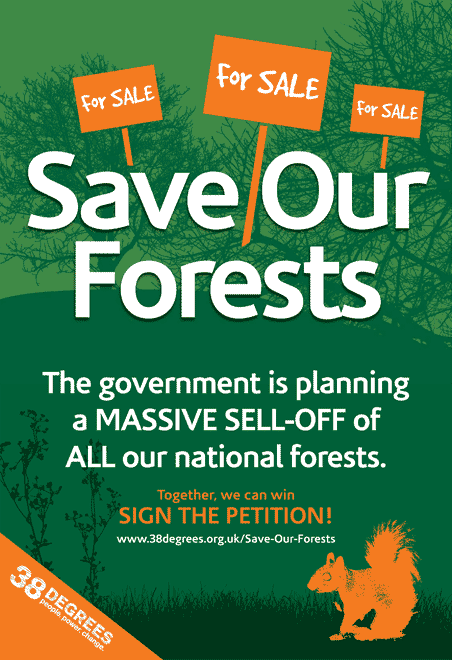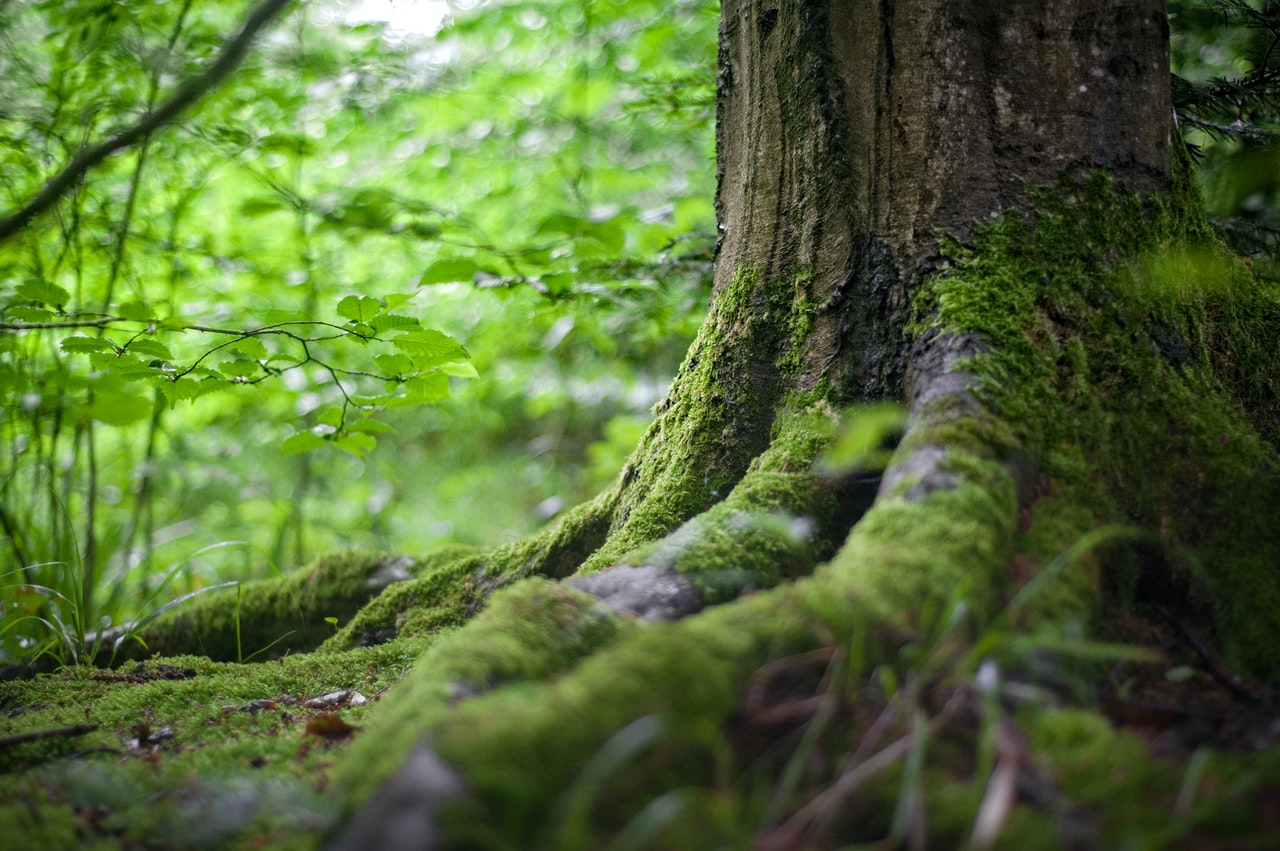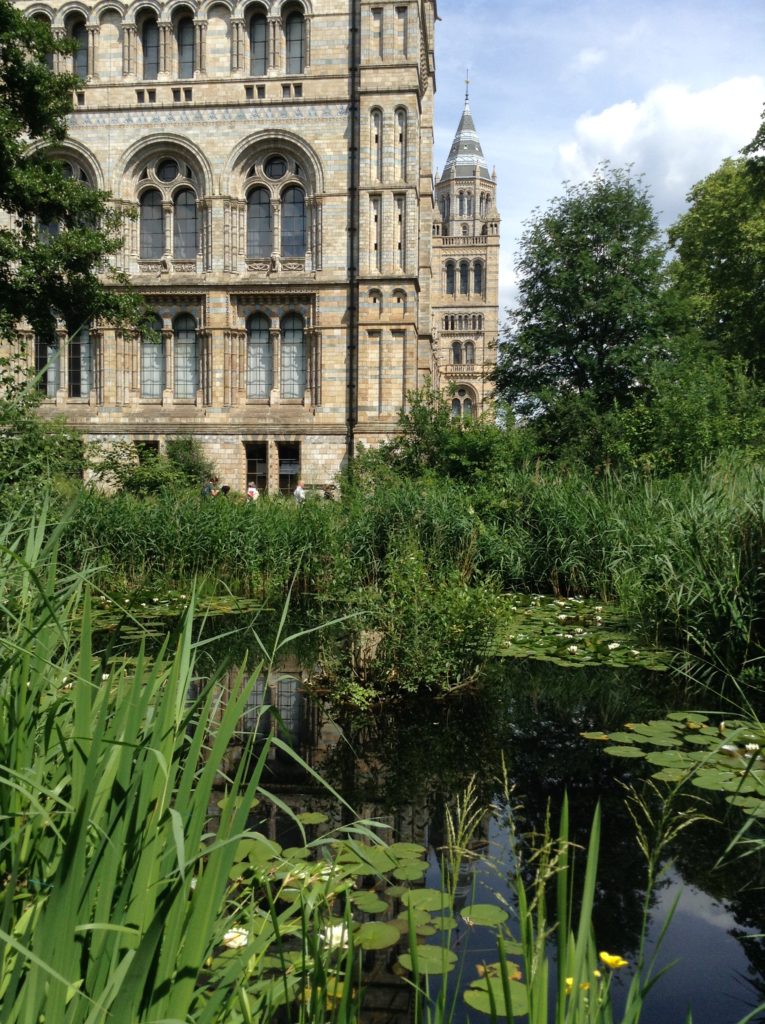Save our Forests: this time we’re serious
- Complaining about the Mainland - 17th August, 2024
- New island designation – is it just greenwash? - 26th April, 2024
- Police and Crime Commissioners – a solution or a problem? - 21st April, 2024
At last, the Save our Forests campaign has developed some teeth, and, unexpectedly, a brain. From some rather unpromising beginnings, an internet-mediated discussion has occurred, a kind of public consultation, if you like, taking place without the assistance of the government. The resulting emergent campaign has turned out to be impressively well-rounded.
Today a letter appears in the Sunday Telegraph, accompanied by an impressive front-page splash. Finally the issues seem to be getting some serious airing – and it’s perhaps no coincidence that instead of breathless hand-wringing about private firms cutting down trees (which is already how the national forestry estate is managed, mostly) the campaign now appears to take some account of the realities of forestry industry. It has also put clearly at the front of the debate the key issues of public access and biodiversity. It’s very encouraging that the campaign, whilst still quite diverse, has got itself into a position where it cannot be dismissed as mere internet crankery. And it’s only because of the doggedness of just those internet cranks and their many supporters that the story has gone as far as it now has. It has deservedly stepped off the social networks and onto centre stage. And it has done this without any central co-ordinating body. The Save Our Woods website now offers some measured statements which seem likely to chime with what a very wide range of objectors might be willing to stand behind.
We believe our trees, woods and forests are too important to be sold to the highest bidder. We believe our woodlands and forests play an essential part in the biodiversity of our country. We believe our forests are our natural heritage and it is in the public’s greatest interest for them to remain under public ownership.
They even go that extra mile and accept that sometimes, you actually do have to cut down trees in the course of woodland management:
Maybe some of our forestry land isn’t managed well in terms of biodiversity (as some “mono-culture” farmed pine plantations could be deemed) but it has its benefits in providing a source of timber to our construction industry among others.
…or maybe to make money to manage those other woodlands, as currently occurs. This campaign is changing pace, and has struck a massive blow today which, at present, seems to be close to a knockout. When the Archbishop of Canterbury, the Poet Laureate, Dame Judi Dench and Bill Bryson join with nearly 100 others and sign a massive letter on the front of a Sunday newspaper, suddenly there’s a message that even the most cloth-eared of governments cannot ignore.





Well done Ranger! I’m lucky enough to work in both F.C. and private/charity-owned woodland and forest across the Island.
It certainly seems to be the case here that the better managed woods and forests tend to be F.C. ones. Of course, there are a number of sensitively managed private woods with wonderful biodiversity and even some good quality timber(!), but in many (if not most) cases our private woodlands tend to be managed by ‘non-intervention’/neglect, primarily due to the limited commercial benefit to the landowner of investing in active management other than shooting. These examples do not bode well for the future.
The Coalition’s plans re. Public Bodies Bill are certainly worrying. Public access and development are not the biggest issues at stake here (contrary to media speculation). Defra’s selection criteria (http://www.defra.gov.uk/corporate/consult/forests/20110127-forestry-sales-criteria.pdf)for 2011/12 goes a reasonable distance towards alleviating fears that the whole Public Forest Estate will be up for grabs, but puts great emphasis on the need for Government to streamline its management responsibilities. It will be smaller, less accessible woods without commercially profitable timber assets which will be the first to go. Unfortunately, woods fitting this description are most likely to be coppice with standards, possibly plantation on ancient woodland sites (PAWS), but maybe also established after 1600. These woods have considerable ecological value, but are unlikely to make money – other than English Woodland Grant Scheme (EWGS) money from Government! Hmmm. To summarise in broad generalisation; the F.C. manage their old woodlands considerably better than they did 20 or 30 years ago, cost us only 30 pence per person per year (think what you spend parking the car for 30 mins in Newport) and will probably struggle to tackle widespread fragmentation of England’s woodlands. EWGS will certainly be oversubscribed for years to come, habitat will be neglected and as for hoping Local Authorities might like to take on some ‘community woodland’…! Perhaps Mr Pugh might consider subsidising libraries, public toilets and Ventnor Botanical Gardens with woodchip/biomass sourced from our own I.W. Public Forest Estate.
Good to see that someone is taking a balanced stand on it. The newspaper and TV items I have seen have focussed on public access and nothing else at all.
It has to be said that the Forestry Commission is a bit of an anomaly in that it is the last nationalised primary producer. And are our forests best served by public ownership (able to take the long-term strategic view)? Or private ownership (incentivised to make the most of an asset without haemmoraging money)?
The government must be defeated..the sale of “OUR” forests must be stopped !
Good for this campaign. The last time I checked our governments were supposed to be to benefit the people. How can losing such precious resources, especially where there are so few, be of benefit to anyone?